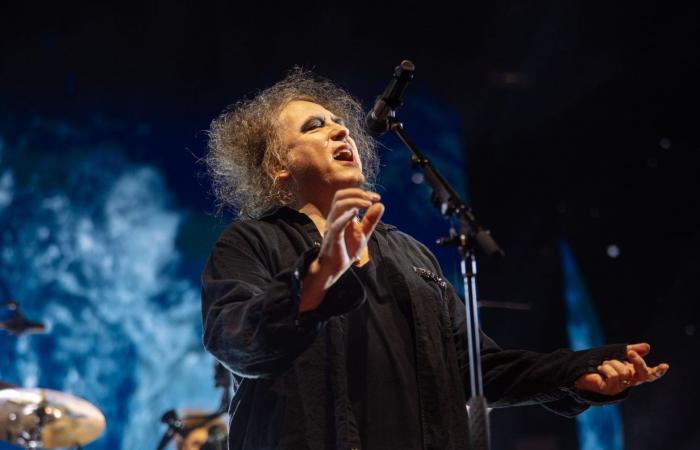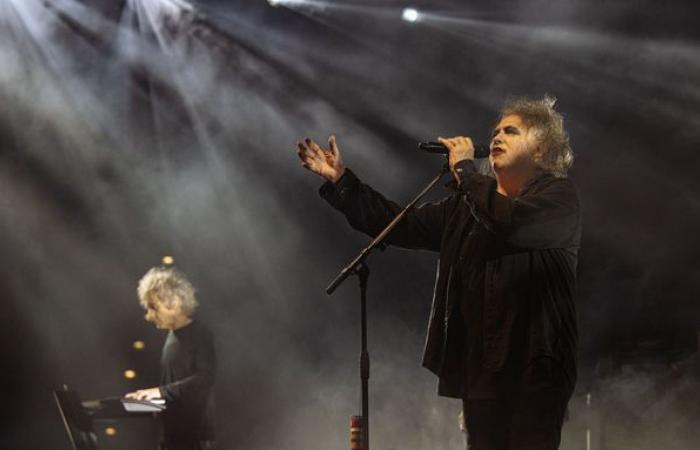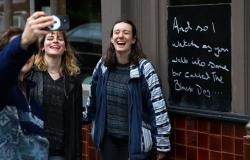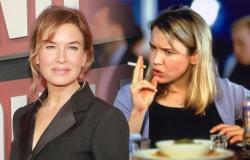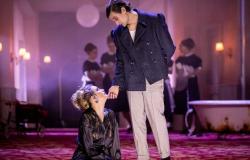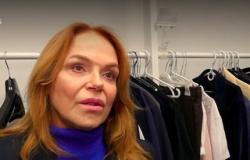It was formed in the claustrophobic atmosphere of a small English town more than 40 years ago, recorded its strongest albums in the last century and did not release a new one for 14 years. Nevertheless, the band The Cure didn’t give up even a hint. On Monday, she charmed the packed Prague O2 arena with captivating songs, including new ones.
The songs of the 63-year-old frontman Robert Smith usually contain long preludes. It’s as if they want to embrace and absorb the audience before the vocals start. The one in Prague sounded just as shrill as when they started. Above the nebula of synthesizers and dense drum beats, he stood like a lighthouse, to which thousands of eyes were fixed.
The Cure were remembered in the O2 arena as masters of focused gradation, layering and condensation of emotions. Without heckling or big gestures, the audience was captivated from the first song. In their presentation, they do not resemble colored glasses through which the world can be observed. They tend to be intense and heavy. But Smith has an exceptional talent for grasping sadness as a feeling that, after digesting and overcoming, one can again experience joy and perceive beauty. Perhaps even more intensely than before.
The Cure carried tension and the play of opposites in themselves, even when they were formed in 1978. Perhaps also because they started creating under the influence of conflicting inspirations. Three classmates from high school in the southern English town of Crawley grew up on intoxicating psychedelic rock, but they were also enchanted by wild punk from nearby London.
They defined their own sound with the trio of albums Seventeen Seconds, Faith and Pornography from 1980 to 1982. Thanks to the strong effects, they sounded obscured. The downtrodden mood stemmed from life during the welfare cuts of Conservative Prime Minister Margaret Thatcher. “It doesn’t matter if we all die,” Smith wrote of the hopelessness experienced in the first words of Pornography.
At the time, the world saw The Cure as continuing the legacy of Joy Division, which was not an enviable position considering the suicide of its singer Ian Curtis. But The Cure’s depression didn’t end so disastrously. Musicians seem to be sending a message that everything doesn’t matter. As Robert Smith sings in the song of the same name, “All cats are gray.”
However, in 2022, they have processed traumas and turn depression into melancholy with warm undertones. When Smith repeats “everything is gone, everything is gone” or “I’m left alone and I have nothing” in the ten-minute opus Endsong, with a giant red moon shining behind him, it is an almost transcendental experience. Endsong is one of four new songs from the upcoming album Songs of a Lost World that the band is performing on the current tour.
One of the biggest hits Just Like Heaven, as played by The Cure in London in 2018. Photo: Lukáš Bíba | Video: Mercury Studios
It’s not a waste
“I recently lost my mother, father and brother, which logically had a strong impact on me,” the singer described the circumstances of the creation of the new material for NME magazine in 2019. “It’s not relentless cold and doom. Those songs contain landscapes similar to those from the Disintegration album. I tried to create a wider palette of sounds, maybe a flood,” he said then – and the Prague concert now proved him right.
Another news is called I Can Never Say Goodbye and tells about his brother. Richard Smith was 13 years older and introduced Robert to music. The song premiered a few days ago in Krakow, Poland, where Richard Smith lived for years.
The Cure are not one of those bands that rehearse a fixed collection of songs before a tour, then repeat them night after night. The main points in the current setlist are only the opening Alone and Pictures of You plus encore hits. Meanwhile, Robert Smith flips through 13 albums as if he wants to play them all and is burdened by the fact that he has to fit in two and a half hours.
In Prague, the synthesizer recording Disintegration, created in 1989 partly under the influence of hallucinogenic drugs, received the most space. They played more than half of it.
Disintegration, as performed by The Cure this Monday in Prague. Photo: Lukáš Bíba | Video: André B.
Songs like incantations
There is no space for exhibitions on the stage. The number of solos in proportion to the compositions played can be calculated in per thousand. All events are unconditionally subordinated to the song. The only driving force on the scene remains the 62-year-old bassist Simon Gallup, the second oldest on duty after Robert Smith.
The crowd is similarly unmoved, but clearly enthralled at the same time, waving rather than dancing. Dimmed lights give way to lingering harmonies, which are more easily absorbed under the skin. White spotlights circle lazily around the hall, each song is followed by applause. The band can’t even thank you enough.
The Cure’s concerts are like strange stoic rituals experienced as much collectively as internally. The feeling of intensity is added by synthesizers, with a sound reminiscent of choir singing. Elsewhere they would look inappropriate, like a cheap substitute, here they are part of the “collection”. More familiar songs break the listener out of the trance, for example when Robert Smith starts playing the chords of A Forest.
Then silhouettes of trees light up on the projection screen and the singer invites the audience into the dark forest. The atmosphere thickens, something big seems to be happening. At the end of the song, the audience begins clapping to the hypnotic beats of the drums and bass as Smith finishes a guitar line distorted by an effect called a flanger that melts the sound of the strings. Bassist Gallup cuts the beat before it devolves into a stadium “cheers”.
The Cure divided the concert into three acts. The first one acted like a long and collective meditation, the middle one contained new songs, and the end with the seven greatest hits – with Just Like a Heaven there was already euphoria in the hall. The hits had to come, without debate. But after all that contemplation, they seemed almost superfluous. Immersing thousands of souls in raw emotions was much more impressive.
Concert
The Cure
(Hosted by Live Nation)
O2 arena, Prague, October 24.

